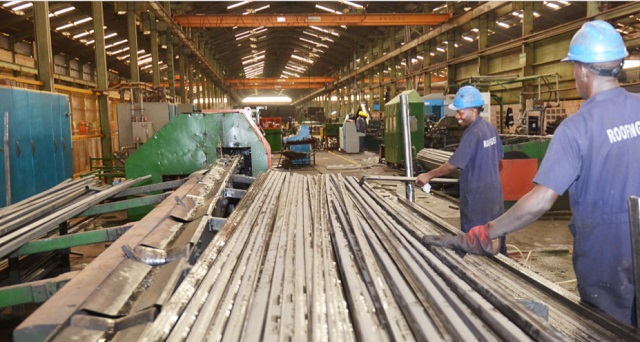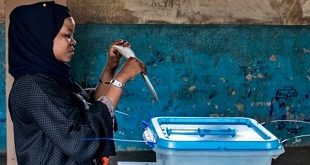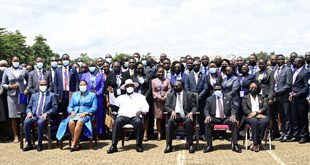
Roofings Group to mark 25 years in September
Kampala, Uganda | JULIUS BUSINGE | Sikander Lanani, the man behind the Roofings Group is expected to make a historic speech in Kampala in September this year as the company he founded and owns celebrates the 25th anniversary.
Born in Kampala in 1944 and trained as a histopathologist in London in 1960s, Lalani’s love for steel seem to have made him leave medicine to deal in steel products.
Indeed, in 1970s, he opened his first retail electronic shop, followed up with a roofings material plant in Kigali Rwanda.
However, he abandoned the Rwandan business when genocide erupted in 1994 and headed for Tanzania. However, due to long bureaucracy to set up a similar investment in Tanzania, he switched his plans to Uganda.
Since then, with the help of World Bank and syndicated loans, the entrepreneur has rapidly built a steel-manufacturing conglomerate in Uganda, generating US$US$60-70 million per year in exports, and with more than 1,500 employees.
These include; Roofings Limited (1994), Roofings Rolling Mills (2009), and Roofings Polypipes (2010) – producing wide range of steel products in East and Central African region.
The Group is vertically integrated in that it produces materials that are used within its establishment and other companies in the region for the production of finished products.
With total investments worth more than US$275million, the group produces a wide range of value added steel products to the tune of 200,000 MT per annum.
During a guided tour at the company’s plant in Namamve Industrial Park on May 14, Lalani, who also doubles as the chairperson of the group, said they have never looked back since they started and will only focus their investment strategies in areas that grow the company, create opportunities and improve livelihoods of the people.
He said they would continue to explore investments in good technology, imparting skills in workers and embracing partnerships with financial sector players, clients, telecoms and customers in Uganda and beyond.
He said the big investments have been made on importing the state of the art technology and raw materials. The company’s current installed capacity stands at 160,000 metric tonnes per annum, according to its website. In the near future, Lalani said, access to skilled manpower will be a very big necessity.
“We would like to see more Ugandans acquiring skills to serve in this industry,” he said.
Good news to the group as power costs drop
He said they are happy that the cost of power has been going down and that has driven their cost of operations down by some margin.
He said they have also formed an association of steel makers to enable them engage government and other players on the emerging challenges related to among others; labour, transport and standards.
The company has over the years increased the number and type of products produced to include; galvanized and pre painted roofing sheets, Eco tiles, Hollow sections, mild steel plates and open profiles all widely used for building for domestic, commercial, public and industrial purposes.
According to data seen by The Independent from the National Planning Authority, steel and iron value chain features highly on Uganda’s development agenda, with Vision 2040, National Development Plan I and National Development Plan II.
However, failure to enforce standards and the absence of unleveled playing fields made the company uncompetitive.
“There are some players in the country who continue to look for easy ways to make money,” said Oliver Lalani, the Chief Executive Officer.
“And that to me is a very big risk to the whole sector…our margins are not really that big.”
That said, he added that Uganda and the region has a lot of opportunity owed to the growing infrastructural developments.
The company, for instance, exports between US$60-70 million per year worth of goods within the region – South Sudan and the Democratic Republic of Congo – earnings that not only boost the company’s revenue but also support the stability of the local currency.
Further, the company pays Shs70-80bn as taxes to government per annum.
****
 The Independent Uganda: You get the Truth we Pay the Price
The Independent Uganda: You get the Truth we Pay the Price


